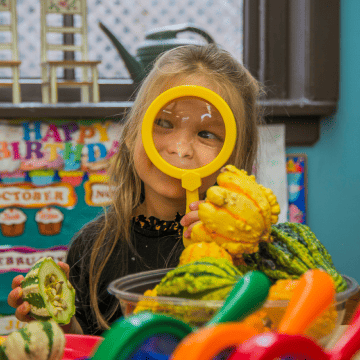By TAPinto Hoboken Staff
Published June 12, 2024 at 2:26 PM
HOBOKEN, NJ – If there’s one thing that every resident knows about Hoboken, it’s that there are plenty of public parks here and that new ones continue to get built.
But the fourth grade class at Hoboken’s All Saints Episcopal Day School have pointed out something that the City currently lacks — community gardens.
Bridget Shouvlin’s fourth grade class recommended to the Hoboken City Council last Wednesday that more community gardens be added to the Mile Square.
Their presentation was the culmination of a seven-month-long Action Research project — something the fourth grade class at All Saints takes on yearly in an effort to find ways to improve Hoboken.
Previous ideas put forth by the students have helped bring about tangible change in Hoboken, including the ban on plastic bags, and the introduction of hydration stations in public parks to help reduce the use of plastic bottles.
This year’s idea of asking the City to introduce more community gardens was an idea that came to the fourth graders after taking a field trip to Harlem Grown, where they saw the benefits an urban farm brought to the Harlem community.
Madie was one of the 12 fourth grade students who spoke in front of the Hoboken City Council on Wednesday.
Recalling their field trip to Harlem Grown, Madie said: “The members of Harlem Grown explained to us how they use their urban garden to offer activities for kids and teenagers, and how they hand out their produce each week so that all members of the Harlem community are able to access organic, and nutritious produce. This got us thinking about how an urban garden could further improve our own community.”
The students also explained how community gardens have brought benefits to other communities in New Jersey, including Montclair and Jersey City.
Steven, another fourth grader who spoke, said: “People who participate in a community garden report feeling more connected to their neighbors and live healthier lives.”
He also pointed out that for every dollar invested in community gardens, the community receives $6 worth of fresh produce in return, and that they produce six pounds of food per square foot each year, according to the American Community Garden Association.
“Living in a city, it is easy to forget all that we can grow outside, but our field trip to Harlem Grown reminded us that it is possible even in an urban neighborhood!” said Steven.
After conducting a survey of residents, the students found that only 54 percent were aware of the community gardens that exist in Hoboken. They also found that while 94 percent of their respondents don’t currently use them, 84 percent expressed interest in having more community gardens in Hoboken.
James, a student, shared how Yasmine Pessar, who runs the Hoboken Green Team, told their class about the way community gardens are set up in Hoboken currently. He mentioned how people keep their plots for a year, and are responsible for maintaining them. However, there is a lengthy waitlist of 1,500 people and only 70 spots are available.
“It takes about 7-14 years to clear the waitlist. As one student in our class pointed out, this is also the time it takes to become a brain surgeon!” James quipped.
Pessar also expressed concern about the limited space in Hoboken’s square mile as a potential obstacle to introducing more community gardens, according to James.
The students spoke to multiple others in the community about the community gardens, including Councilwoman Emily Jabbour, who they interviewed in their classroom.
“She echoed Ms. Pessar’s concerns about the limited amount of space in Hoboken. We also learned that Hoboken does not have a rent-a-lot program like Jersey City and that there are parks and various lands being repurposed and that through advocacy we could recommend the establishment of community gardens,” shared fourth grade student, Ruby.
In making their recommendations to the City Council, Inaya proposed bringing more community gardens to Hoboken’s parks, noting how oftentimes there are teenagers and other kids there who don’t have anything to do, leading them to take up unsafe behavior.
“We think that offering opportunities for children and teenagers to volunteer at community gardens would be a wonderful opportunity for everyone to be able to enjoy outdoor space in a more productive way,” said Inaya.
Charlotte said the community gardens could be used to help address food insecurity.
“We think that community gardens provide a great opportunity to further assist people who are in need with healthy food. Perhaps encouraging organizations, such as schools and churches, to establish shared plots could allow our community to further meet the needs of those less fortunate,” said Charlotte.
Addressing the issue of space, Audrey said the class was able to identify several abandoned lots in town and encouraged the City Council to add in more community gardens as they lead the redesign of public parks. Audrey added that there were opportunities to encourage residents to set up community gardens on rooftops or in shared lots.
“We are confident that community gardens offer a variety of benefits to our community, and encourage the city council to prioritize their creation as we plan for the future,” Audrey said, before concluding the presentation by thanking the City Council for listening to their ideas.
After the presentation, James, one of the students, admitted to TAPinto Hoboken that he was a bit nervous before going up to speak. But he said he was glad to have shared the class’s work with the Council members.
Shouvlin told TAPinto Hoboken, “I love doing this event with them because it gives them an opportunity to really see how they can use their voice in a productive way to bring about change in the community, which especially given everything going on in the world these days is so important to teach them — exactly how and what they can do to make a difference.”
Similar to past years, this year’s fourth grade bunch may succeed in bringing about the positive change in Hoboken they were hoping for.
Councilwoman Tiffanie Fisher has said that she has discussed with the city having community gardens be one of the potential uses at the Monarch site, and Jabbour told TAPinto Hoboken after the class presentation that adding community gardens to the resilience parks was a possibility.
All Saints has also applied for a grant to help build raised beds and grow vegetables in support of the local community on the school’s campus.
Head of School, Kimberly Beck, said that this moment was something the students had been preparing for throughout their entire elementary schooling, as All Saints had taught them about undertaking research and practicing how to speak and present their ideas in public.
Beck added that having known the history of how the classes before them affected change, the students realized that what they were doing was not just preparing them to affect change when they arrive in high school or in college, but in the present day as ten-year-old fourth graders.
“That’s the biggest difference,” Beck said. “So many schools talk about how they can affect change in the future, we’re talking about how they can do it now.”




